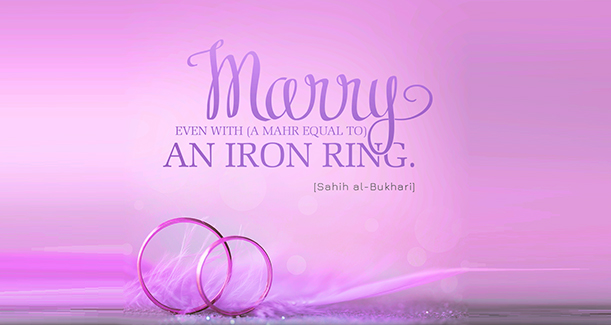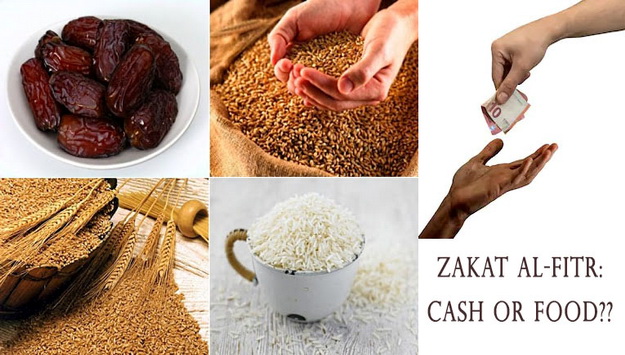Source: Saudi Life | By – AFIFA JABEEN
 THERE was a Facebook post a few days back that went ‘viral’.
THERE was a Facebook post a few days back that went ‘viral’.
It said: “When she is a DAUGHTER, she opens a door of Jannah for her father, when she is a WIFE, she completes half of the Deen of her husband, when she is a MOTHER, Jannah lies under her feet.”
Men and women alike commented in huge numbers, their comments gushing forth with exclamations of ‘SubhanAllah’ MaashaaAllah’ ‘Alhumdulillah’ on the post, which garnered some 20,000 plus ‘likes’.
And then there was a friend, who meticulously copied the above quote to her status, but with a little addition. “Still it sucks to be a woman,” she said, asking “How many of you men would like to be a woman?”
———
“If everyone knew the true status of a Muslim woman in Islam, even the men would want to be women.” (Sheikh Akram Nadawi)
Elsewhere, on an online discussion on eve-teasing, which gradually became one about Hijab, one of the sisters asked: “Why should the burden of morality lie on the woman alone?” when a few brothers pointed out that a woman who dresses inappropriately is the one who attracts all the attention.
So is Islam saying that a woman is the cause of all fitnah? Does she get to be blamed all the time?
Case 1: A man and his wife seated in a car on a busy road. They halt at the signal. The guy in the next car rolls down his window, eyes the woman and flashes a smile. The woman, who of course is niqab-clad, is embarrassed. Her husband, who’s been observing for a while, turns to her, reprimands her for ‘catching the attention’ of the stranger.
Case 2: A girl walks to a nearby language center, where she attends daily classes. One day, while walking to class, she notices that she’s being followed by a creepy-looking man who follows her to her home every day and disappears after. The girl doesn’t speak about the incident to anyone, especially her parents fearing the parents would put an end to her classes. A few days later, egged on by the girl’s quite resistance, the man finally makes his move and stops her as she makes her way home. As fate would have it, her father happens to be standing a few meters away and witnesses this encounter between the two. Her father overreacts and assumes the worse, that his daughter is meeting a man. Not knowing that she was only trying to get away from him. The next thing she knows is she’s no longer allowed to attend her language classes. Her classes are suspended and now she must bear the wrath of a father who thinks she was having an affair.
Case 3: A teenage girl thought she had little reason to worry, since she was living with her father’s brothers (her Mahram) and their families. Right? Wrong. Unfortunately, one of them attempts to violate her chastity. Other relatives in the family whispered how the girl’s ‘less than decent’ dressing and ‘more than required friendliness’ indicated that such an approach was ‘welcomed’ by her. An elderly relative even went so far as to say how the relative in question was such a rage in his college days and just how many girls were crazy about him, which is why according to her, the claim of the girl just didn’t make sense.
 For solace, the girl turned to the only ones she trusted would trust her, her parents. But alas. Out of awkwardness, the issue was not discussed. The last words that were exchanged regarding the issue was when the father said, “In such cases, it is often the woman who is thought to be wrong.” For the girl, the wounds inflicted on her morality await closure even today.
For solace, the girl turned to the only ones she trusted would trust her, her parents. But alas. Out of awkwardness, the issue was not discussed. The last words that were exchanged regarding the issue was when the father said, “In such cases, it is often the woman who is thought to be wrong.” For the girl, the wounds inflicted on her morality await closure even today.
A common factor in these stories is, placing the blame solely on the woman. She is unfairly punished (severe at times) for someone else’s crime, even though she’s the victim. Her trust is betrayed.
Are these manners or ideologies from the teaching of Islam or from our own selves? As a society, have we self-imposed certain norms?
In this context, what is a better example to cite than from the Seerah? Let’s take a look at the event called ‘Haaditha tul Ifk’ or ‘The Slander’.
The hypocrites of Madinah, frustrated at their defeat in the battleground, spread a malicious scandal against the most favorite wife of Rasoolullah (sallallahualayhi wa sallam), Aisha (Radhi Allah). Unfortunately some of the Muslims took part in it as well. Nasty things were said about the Messenger’s (sallallahu alayhi wa sallam) wife and a righteous companion, who rode Aishah (Radhi Allah) from outside Madinah on finding her lost when the rest of the caravan had moved ahead presuming she was riding with them. When the rumors reached the Prophet (sallallahu alayhi wa sallam), he thought it best to hold a counsel with his companions. All only spoke good of her, in addition to offering suggestions on how he could investigate her character at the same time reminding him (as a way of comforting him) in his distress that he could always look for another wife.
The Prophet (sallallahu alayhi wa sallam) addressed the people from a pulpit, saying: ‘O Muslims, who from among you will defend my honor against the attacker from the person who have transgressed all bounds in doing harm to me by slandering my wife. By God, I have made a thorough enquiry and found nothing wrong with her nor with the man, whose name has been linked with the “Slander”.’
All this while, Aishah (Radhi Allah) who had fallen ill after returning from the trip, was unaware of the wicked plans of the hypocrites.
While convalescing at her mother’s place, the Messenger (sallallahu alayhi wa sallam) visited her often and enquired about her health, saying no more. On learning what had happened, she burst into tears, spending sleepless nights, weeping to such an extent that she believed her “heart would break”.
During one of his visits, the Prophet (sallallahu alayhi wa sallam) found Aishah (Radhi Allah) weeping. In a polite tone, he advised her to repent to Allah Subhan wa Ta’ala if she had done any wrong. Her tears stopped. Note the composed behavior of the Prophet (sallallahu alayhi wa sallam) and his trust on Allah Subhan wa Ta’ala inin a sensitive and serious situation like that.
Not long after, Allah sent revelation to His Messenger (sallallahu alayhi wa sallam), exonerating Aishah (Radhi Allah) of all suspected wrongdoing. “Cheer up, Aishah! Allah Subhan wa Ta’ala has revealed your innocence,” the Prophet (sallallahu alayhi wa sallam) said. He then went out and addressed the people, reciting to them the powerful ayah:
“Indeed, those who came with falsehood are a group among you. Do not think it bad for you; rather it is good for you. For every person among them is what [punishment] he has earned from the sin, and he who took upon himself the greater portion thereof – for him is a great punishment.” (An-Noor:11)
The accusations that were levied upon Aisha (Radhi Allah)can happen to anyone, anytime in our society. The question is how should we then respond? Indeed, we learn from the Seerah of the Prophet(sallallahu alayhi wa sallam) utmost patience and wisdom need to be practiced in a situation like this. It was a question of honor and dignity of the Prophet (sallallahu alayhi wa sallam). The matter was not taken very lightly and it was definitely not easy on the Prophet(sallallahu alayhi wa sallam). However, we saw him maintain his composure and dignity. He didn’t lash out immediately at his beloved wife nor was he quick to draw any conclusions. He (sallallahu alayhi wa sallam) did nothing that would fuel the rumors further and did not even give them any credibility. This shows that the Prophet (sallallahu alayhi wa sallam) trusted his wife and did not take action until he confirmed the matter. Nothing he said to Aishah (Radhi Allah) or to the companion Safwan (Radhi Allah) to indicate that he believed in what was being said about them. In fact, he (peace be upon him) continued to visit Aishah), enquire about her health and assure himself that she is well.
Despite being extremely upset, he (sallallahu alayhi wa sallam), exhorted the people, praising his family and the companion.
How many men today would act with such patience and forbearance if faced with a similar situation? Indeed, we learn from the Prophet (sallallahu alayhi wa sallam) that one must not hasten to make any conclusions on a matter before any evidence has been obtained. And in him do we find the best example for all humanity.
“O you who believe! If a rebellious evil person comes to you with a news, verify it, lest you harm people in ignorance, and afterwards you become regretful to what you have done.” (Hujjirat:6)
One should be very cautious in regard to charges of adultery against men and women of good reputation, always acting to refute and suppress them immediately.
The Shariah legislates utmost respect for a woman’s chastity under all circumstances and hence, lays out the necessary precautions and rules to protect this chastity and morality. In fact, one of the important objectives of marriage is to preserve the chastity of men and women. The seriousness of the matter is apparent in the verses from An-Noor revealed concerning the slander affair:
“Why then, did not the believers, men and women, when you heard it, think good of their own people and say: “This is an obvious lie”. Why did they not produce four witnesses against him since they have not produced witnesses! Then with Allah, they are the liars. Had it not been for the grace of Allah and His mercy unto you in this world and in the Hereafter, a great torment would have touched you for that whereof you had spoken. When you were propagating it with your tongues, and uttering with your mouths that whereof you had no knowledge, you counted it a little thing, while with Allah it was very great.And why did you not, when you heard it, say: “It is not right for us to speak of this. Glory be to You (O Allah)! This is a great lie”. Allah forbids you from it and warns you not to repeat the like of it forever, if you are believers.” (An-Noor:12-17)
Much of how a woman gets treated in her house or in society today is unfortunately a product of culture, not religion. The widespread notion that a woman is the sole bearer of morality stems from culture, also.
“Those who annoy believing men and women undeservedly, bear on themselves the crime of slander and plain sin” (Al-Ahzab:58)
Accusations that target a woman’s morality are considered serious matters in Islam. This same revelation during the Slander Affair established the punishment for false accusations of adultery.
“And those who accuse chaste women, and produce not four witnesses, flog them with eighty stripes, and reject their testimony forever. They indeed are the Fâsiqûn (liars, rebellious, disobedient to Allâh).” (An-Noor:4)
As legislated by the Noble Quran, all those who participated in spreading the rumor against Aishah(Radhi Allah) were flogged with eighty stripes. Exception being that of Abdullah bin Ubai, the chief plotter of the unfortunate incident. For it is said that punishment in this life would have commuted the everlasting chastisement in store for him in the Hereafter.
How often do we find ourselves in the middle of some juicy gossip about a certain pretty girl ‘linking up’ with a big shot, or an ‘X’ colleague having an affair with a ‘Y’ colleague? The ease at which some of us today talk about other people’s private lives and the punishment meted out to the slanderers during the Prophet’s (sallallahu alayhi wa sallam) era should be enough to make one shudder and reconsider our priorities and interests. Remember what the Prophet (sallallahu alayhi wa sallam) said:
“The excellence of a person’s Islam includes leaving what does not concern him.” [Tirmidhi]
 navedz.com a muslim's Quest for the truth
navedz.com a muslim's Quest for the truth






